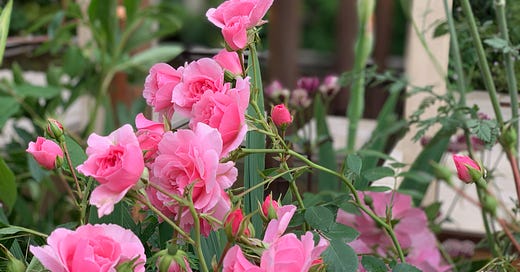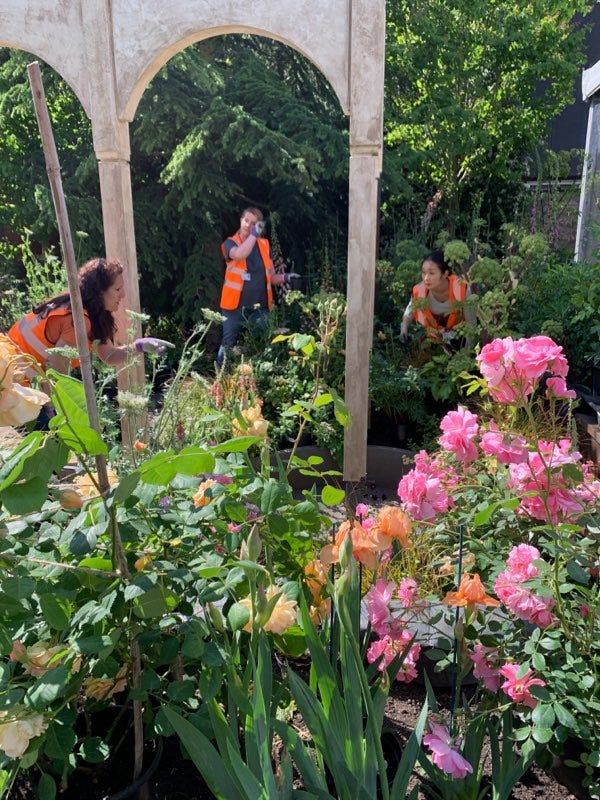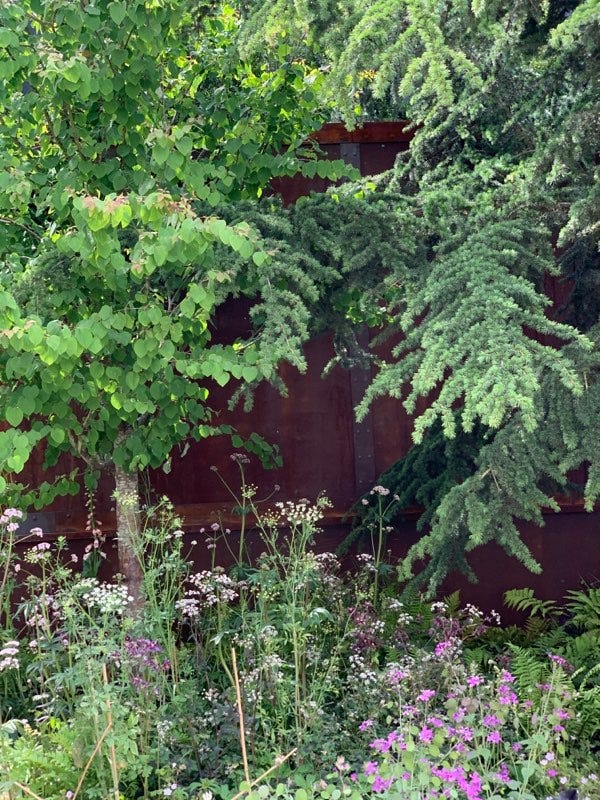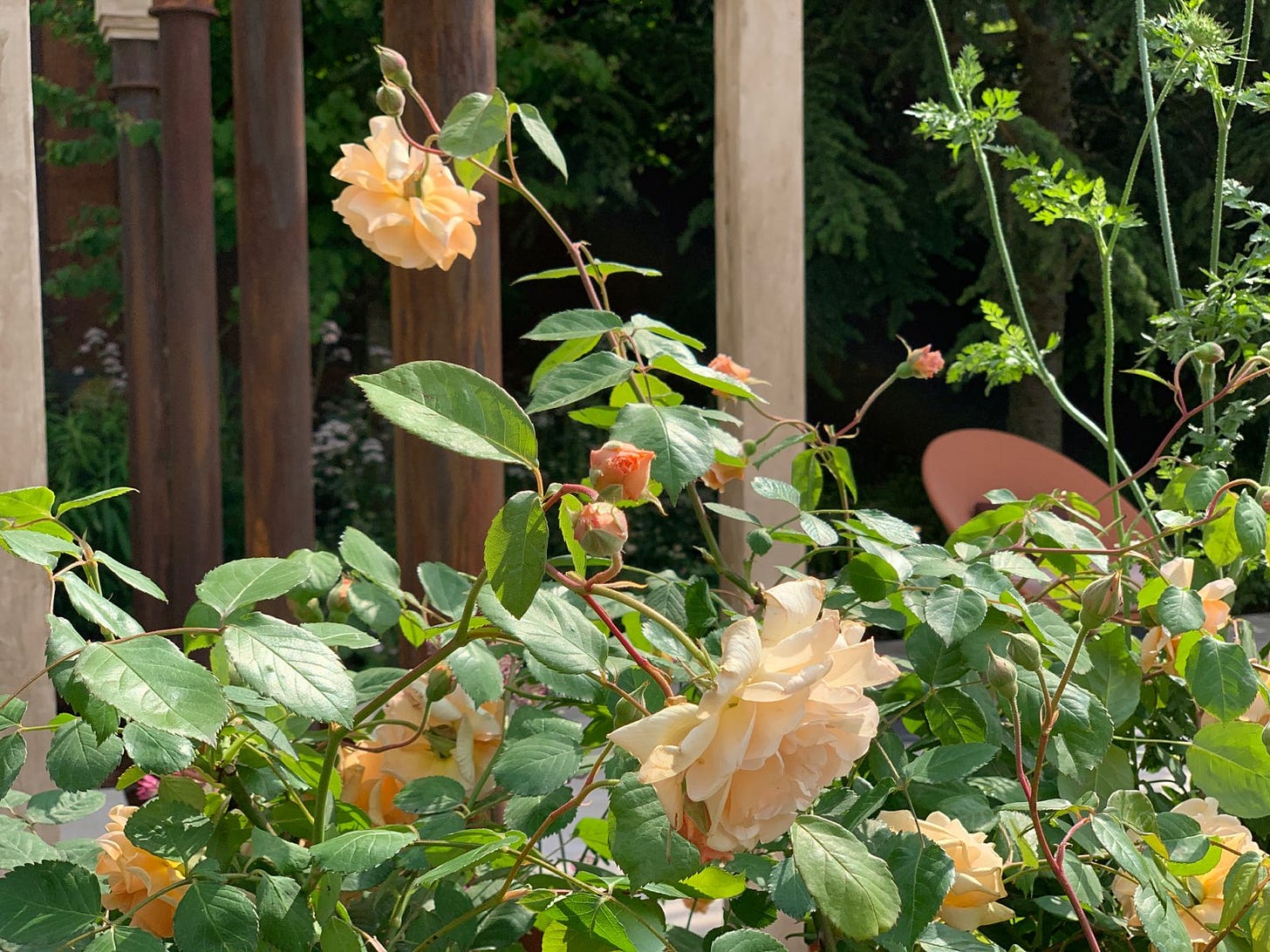Today I’m heading off for my second day of judging at the Chelsea Flower Show, and by teatime, we’ll know the results.
Points that the assessors made the day before will be picked over and discussed, and eventually we’ll all agree on the right medal for the right garden.
The team of assessors play a key role in the almost-mythical notion of judging at this show. Believe it or not, the whole process is designed to be as fair and as positive as it can be: the idea is to give the designer the best possible chance of getting the best possible medal. So this advance team of three experts is sent in the day before the wider team of judges to carry out a detailed recce. Plants are peered at, expertise in design is scrutinised, and construction of every item is scrutinised. We look under, around, over and through, and if something doesn’t look right, the chances are we’ll spot it.
The panel of judges consisting of these three assessing judges and four regular judges. We also have a ‘moderator’ who keeps watch and ensures consistency is applied throughout the process.
How are gardens judged?
Gardens are marked against a set of key criteria (see below) but importantly, they are also marked against the designer’s written brief – has the designer done what he or she said they were going to do? Or in other words – would we have a happy client?
What is a garden brief?
Designers submit a brief well in advance of the show and this includes the following points:
Description of the garden
Purpose of the garden
Function of the garden
Key plants and features
So, judges should expect to see what they were told they were going to see and if they don’t, no matter how stunning, fabulous and beautiful the garden is, it means that something has gone wrong somewhere along the way and it will be marked down as a result.
This could mean that a garden that appears to be Gold standard may only get a Silver Gilt – or even less – because it doesn’t match up to the brief. Perhaps a key feature of the design, such as a sculpture, specimen tree or feature integral to the garden has had to be changed during the build process.
So what are the criteria?
As well as meeting the brief, there’s a number of other criteria for which the judges give the following marks: Excellent (four points), Very Good (three points), Good (two points), Poor (one point), and Unsatisfactory (zero)
Ambition – how original is the design? Is there theatre, flair, atmosphere and impact?
Overall impression – does the garden work as a whole? How fine is the finish and attention to detail?
Design – does the garden work for its supposed purpose?
Construction – how good is the quality of the build?
Planting – think colour, impact, composition, health but also – would these plants live and survive together?
Does judging happen all at once like on The X Factor?
No - there are three stages to judging: Assessing, Judging and Moderation.
Stage 1: Assessment – three judges will visit the garden to hear a short presentation from the designer; this is an opportunity for the designer to highlight any changes or developments to the brief. The judges will then assess the garden against each of the criteria and briefs.
Stage 2: Judging – the three assessing judges are joined by four other judges who will visit the garden one more time to decide on a medal. If there’s no clear decision, further discussion and a re-vote will occur until the panel agrees.
Stage 3: Moderation – a moderator (experienced judge) will listen to the judges’ vote and thinking to ensure consistency. The medal will then be confirmed and the garden with the highest score will win Best in Show.
If more than one garden scores the same, further discussion and a vote will occur1.
Three years ago, this was getting ready before the judges arrived to consider their opinion of the Wedgwood Garden.
The tireless planting team spend over twelve hours a day incorporating more than three thousand plants into place. Half a dozen people over around half a dozen days: you do the maths.
And then factor into that the delays that have occurred previously which mean you can’t plant to schedule, and that instead of six days, you might only have four. Do the maths again and an impossible result is thrown up.
But you do it. Or rather, you and your planting team do it. Without them you’re nothing; with them you’re the best team ever.
I was reminded of this as I talked to Sarah Eberles’s brilliant planting team yesterday. These teams consist of the world’s best designers: Helen Basson and Sarah Jarman had been up ladders carrying out impossible feats of planting that you’ll be amazed at when you see them for yourself as the photos start to emerge over the next couple of days.
This corner from my Wedgwood garden doesn’t look impossible, but it was a tough one to plant - remember that delay I talked about in the last post which meant that we would have to stand in a lined water feature that couldn’t be trodden on?
Well, we got there. This gentle planting of greens, soft hints of purple and sparkles of white was a tough one….
Transitioning from this, the peaches and pinks of the roses and peonies, that experimental planting, had gone in….
The arches were up, a set of three structures set at specific moments to just meet each other.
And what happened?
That’s for next time..
I’m off to judge… no spoilers here, but there’ll be some glimpses of the show gardens later, with some of my thoughts and some quotes from the designers! .
Taken from the RHS website.










Great explanation. I've struggled over many years to fully understand judging and why my favourite garden hasn't won a gold medal. I finally got my head around it by thinking of it as like an examination. In particular an English language exam where as well as writing a beautiful story you also need to make sure of correct spelling and grammar. It's the spelling and grammar that is most likely to trip us up. I also compare the role of the judges "examiners" to people who are tasked with minute scrutiny of the written story. They're the ones who will spot grammar and spelling. The visitors to the show (like me) are the equivalent of people who just hear the story being read out without the benefit (or distraction) of seeing the errors. We all think: "What a beautiful story! It must deserve a gold medal!" - "How can those judges possibly have given it any other score?" The judges have been fair, but we the visitors don't look at the story (show garden) in the same way.
Thank you so much for your detailed explanation!!! I am still stuck on the 3,000 plants!!!!